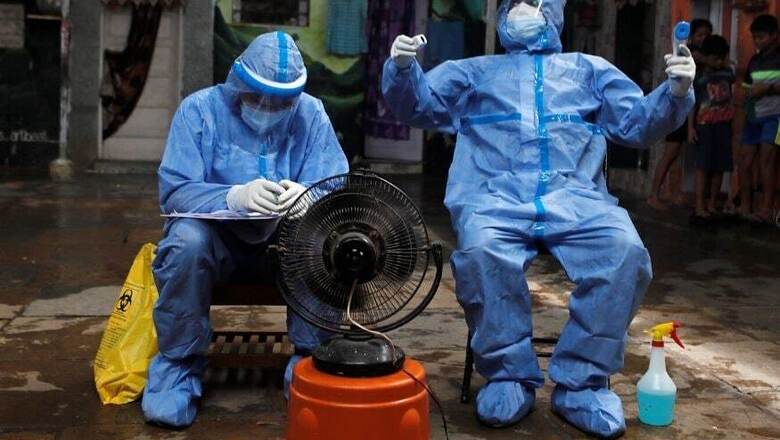
views
In Mumbai, out of 5,682 samples tested by private laboratory Thyrocare for antibodies against Covid-19, 1,567 or 27.6% tested positive, data shared by the lab has shown.
The numbers for Delhi, as per Thyrocare, show that of the 4,290 samples tested, 34.2% or 1,467 tested positive for antibodies. Seen in the context of Delhi’s sero-prevalence study results, the private laboratory data indicates that even in Mumbai, a sizeable population might have been exposed to the infection.
Thyrocare lab offers antibody tests to private individuals as well as companies. The lab has been using ELISA and CLIA kits to carry out these tests and its managing director Dr A Velumani has been sharing data from the antibody tests.
On Wednesday, Dr Velumani wrote on Twitter that across India, Thyrocare labs had done 74,809 antibody tests in 65 cities and the positivity rate among these samples was 17.5%. This meant that 13,036 samples tested positive for antibodies.
However, Dr Velumani told News18.com that this data should only be seen from the perspective of positivity rate as of now as it was not a planned study.
“We mostly had the affluent classes and white collar workers coming to us to get the antibody test and very negligible or in some cases no one from the lower strata. We have submitted this data to the Indian Council of Medical Research as per their guidelines. It is up to them to analyse it. Even though it is not a planned study, the samples are random because we have tested people from Nariman Point to Jharkhand,” he said.
Antibody testing involves drawing blood to test serum for antibodies against Covid-19. If a test is positive, it indicates that the person has been exposed to the infection around 15-21 days prior to the test. The test looks for IgG antibodies and these antibodies are produced in the body at least 14 days after the infection whereas IgM antibodies are produced seven days after the infection.
The private lab data though should be read with some caveats. The data is not from a planned survey that is designed to estimate the prevalence or exposure to infection in the population.
This means the samples may not be representative of the population of a town or city. In Delhi, the government and Ministry of Home Affairs collected 22,000 samples from 11 districts to reflect a fair estimate of the prevalence of the infection.
When asked about the data, Daksha Shah, Deputy Executive Health Officer of Brihanmumbai Municipal Corporation, said, “They (Thyrocare) have not shared the data with us. It will be difficult to comment without any knowledge of the profile of those tested and without information on their health conditions. Ideally, we would like to know what samples were collected and what the results are.”


















Comments
0 comment